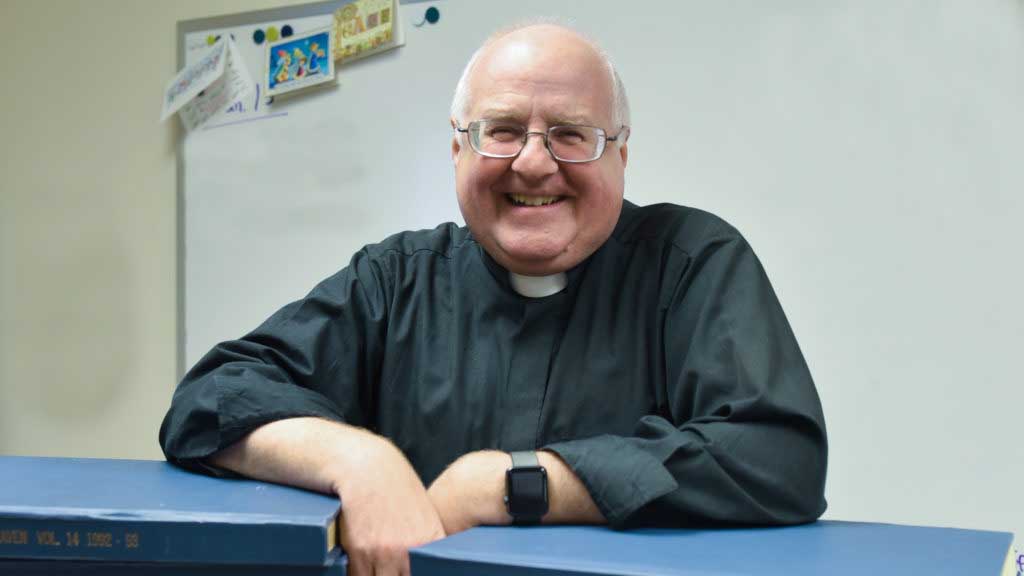
by Father Mark Goldasich
Nothing has the power to upset you.
When I came across that line recently, well, quite frankly, it upset me! I’d not heard anything so ridiculous. Even more upsetting was the fact that a favorite author of mine, Jesuit Father Anthony de Mello, wrote it.
Father de Mello was a prolific storyteller who kindled a deep love for stories in me. His thin volume, entitled “Rediscovering Life: Awaken to Reality,” was based on a lecture he gave shortly before his sudden death in 1987 at age 55. This is where that silly — at least to my mind — “upset” sentence appeared.
Delving deeper into Father de Mello’s reasoning, however, got me thinking. He gave an example of a picnic getting rained out. You’re upset. But that feeling is not caused by the rain, but by your reaction to it. As he explains: “But you and I have been trained to make our happiness depend on certain things and so when those things don’t happen — thanks to our training, thanks to our programming, thanks to the false belief If this doesn’t happen, I’m not going to be happy — well, what do you know? We upset ourselves.”
I found myself nodding in agreement. How many times have I been upset at the “rotten driving” of others when, had I just left home 10 minutes earlier and not put myself in a situation of being late, I’d not even notice the driving of others.
We’ve heard the antidote for upset throughout Easter: peace. And not just any peace. Jesus says: “My peace I give to you. Not as the world gives do I give it to you. Do not let your hearts be troubled or afraid” (Jn 14:27).
But what about those real issues, like war or violence, that concern us? Should we just ignore them? A couple of stories clarify what I suspect Father de Mello would say.
The first is about Ramsey MacDonald, one-time prime minister of England, who was discussing with another government official the possibility of lasting peace. The latter, an ex-pert on foreign affairs, was unimpressed by MacDonald’s idealistic thinking and remarked, “The desire for peace does not necessarily ensure it.”
MacDonald replied, “Quite true. Neither does the desire for food satisfy your hunger, but at least it gets you started toward a restaurant.” (Found in “Illustrations Unlimited,” edited by James S. Hewett.)
Rather than merely being upset at the serious issues afflicting the world, a peaceful heart leads a person to pursue concrete solutions, as this second story illustrates:
Sadaku was a Japanese girl caught in the bombing of Hiroshima. Her entire family was killed, and she received severe radiation burns. Although in a hospital, she was dying.
Instead of bemoaning this tragedy, she said: “This can never happen again to people. People can’t be this cruel to one another. So each day, I’m going to make a white crane, and I’m going to send it to somebody and ask them to be a disciple for peace.” After doing this for 683 days, she died.
Sadaku gave people a choice: Be consumed by a desire to bomb the rest of the world in revenge or continue what she started. Folks made a 684th white crane, then a 685th . . . and those still go throughout the world saying that life can be better. (Found in William S. Bausch’s “A World of Stories.”)
So, the next time you find yourself getting upset, which will you pursue: a bottle of Pepto-Bismol or a more peaceful heart?


